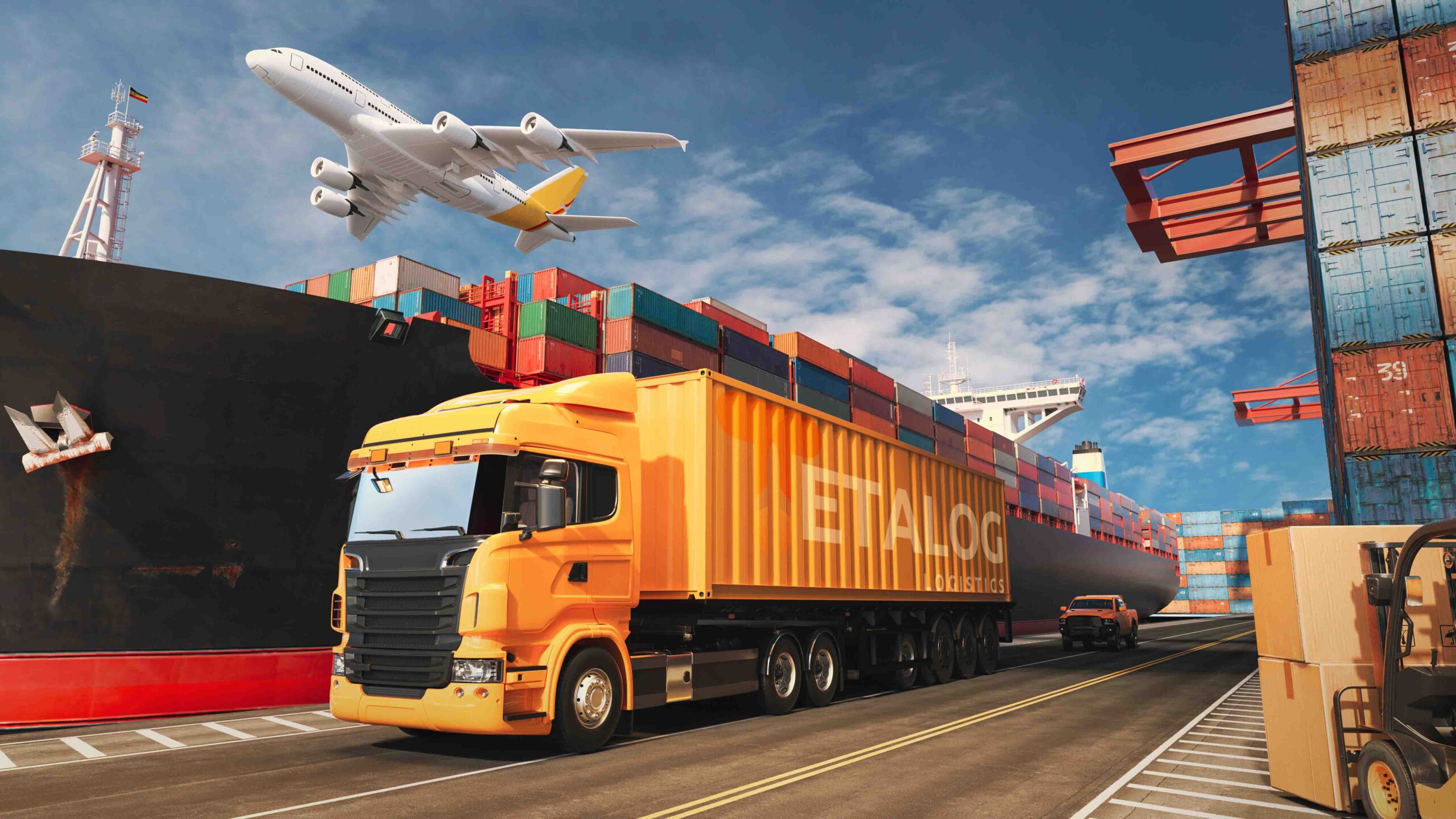
What is a Freight Forwarder? In our globalised world, trade is no longer limited to production alone; delivering products at the right time, to the right place, and at the right cost has become just as important as production itself. This is where the concept of freight forwarding comes into play. So, what is a freight forwarder, what are their responsibilities, and for those wondering what a forwarder does, let's take a closer look at the role this profession plays in the logistics world.
What Does Freight Forwarder Mean?
In the simplest terms, a forwarder is a person or company that organises the transport of cargo from one point to another using the most cost-effective and efficient method. In other words, a forwarder is not actually a carrier, but rather the organiser of the transport. They bring together all the actors involved in the transport process to ensure that it runs smoothly. In this context, the word freight means ‘cargo’ or ‘freight charges’ in English and is a term we often hear in international transport. Freight refers to goods transported from one point to another, regardless of whether it is by sea, air, road or rail. Therefore, when answering the question ‘what is a freight forwarder?’, we are actually referring to an intermediary who is responsible not only for the transportation of cargo, but also for its storage, insurance, customs clearance and documentation. Freight forwarders play a critical role in managing logistics processes and facilitate transportation processes while providing cost efficiency to their customers.
What Are the Duties of a Freight Forwarder?
Although a freight forwarder may appear to be an intermediary actor in the transport chain, they are actually the backbone of the chain. These professionals decide which mode of transport (air, road, sea, rail) to use and work to find the most suitable freight rates for their customers. They ensure that the necessary documentation for exports and imports is arranged. These documents are essential for the smooth execution of customs procedures. Organising the storage of goods in suitable warehouses and their timely delivery is another important task of freight forwarders. Acting as an intermediary for insuring the cargo against possible risks, the freight forwarder also transparently informs the customer of the cargo's location at any given stage.
Why Should You Work with a Freight Forwarder?
Firstly, you don't have to deal with paperwork and bureaucracy, which saves you time and energy. By working with a professional forwarder, you can find affordable freight rates thanks to high-volume agreements. Potential customs issues are minimised, ensuring a smoother transportation process. Understanding the trade laws of different countries provides a significant advantage and makes your business more secure. In the complexities of global trade, working with an expert forwarder gives you a competitive edge. You achieve less stress and greater efficiency in your international logistics processes.
A Freight Forwarder's Areas of Activity
Forwarding companies do not merely organise transportation; they also offer integrated solutions covering the entire logistics process. By combining different modes of transport such as air, sea, road and even rail, they also manage critical services such as customs clearance and insurance on behalf of their customers. Thanks to their extensive global network of agents, they ensure that every stage proceeds seamlessly and in a coordinated manner.
The main service areas offered by forwarding companies are as follows:
- International and domestic freight forwarding
- Less-than-container load (LCL) and full container load (FCL) shipping
- Management of import and export processes and customs clearance services
- Road, sea, and air freight forwarding, as well as rail, river, pipeline, and multimodal transport solutions
- Carrier selection and freight planning
- Preparation of transport contracts and scope management
- Consulting on international regulations and trade rules
- Preparation of official transport documents (e.g., CMR, bill of lading, etc.)
- Management and reporting of all stages of operations
- Calculation and optimization of logistics costs
- Cargo insurance services
- Storage and warehouse solutions
- Handling, barcoding, packaging, and labeling operations
- Support in tax and financial legislation matters
- Marketing and customer relationship management
- Intermediation in banking and financial processes
- Ensuring operational communication with digital infrastructure and information systems
Forwarding companies that respond to the growing logistics needs of developing global trade with modern methods play a key role in supply chain management thanks to their expertise, technological investments, and extensive experience.
What is the Difference Between a Freight Forwarder and a Shipping Company?
Shipping companies physically transport goods, and their primary role is to ensure that goods physically reach their destination. They specialize in transportation vehicles and logistics processes. Freight forwarders plan, organize, and manage the entire process. They take care of all the details, such as where the goods will be picked up, which routes will be followed, and which transportation methods will be used. The difference between freight forwarders and transportation companies is that one manages the transportation process, while the other carries it out.
Is a Freight Forwarder Necessary for Small-Scale Exporters?
Yes, forwarder support can be critical for small companies because customs and transportation procedures can be complex. Forwarder services provide expertise to exporters, helping them overcome these challenges. It also allows them to reduce the risks they may encounter in international transportation.
Is a Freight Forwarder Only Used in International Transportation?
No, forwarder support can also be obtained in the domestic market, especially for complex logistics needs. Many companies in Turkey benefit from forwarder services to optimize domestic transportation processes and reduce costs.
Are Freight Forwarder Services Expensive?
On the contrary, freight forwarder services may seem expensive at first glance for many businesses. However, working with a forwarder can reduce costs in the long run because the damage caused by an improperly planned logistics process can be much greater. With proper planning and expertise, transportation processes become more efficient.







